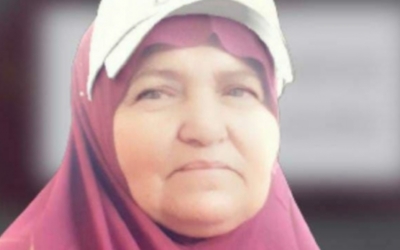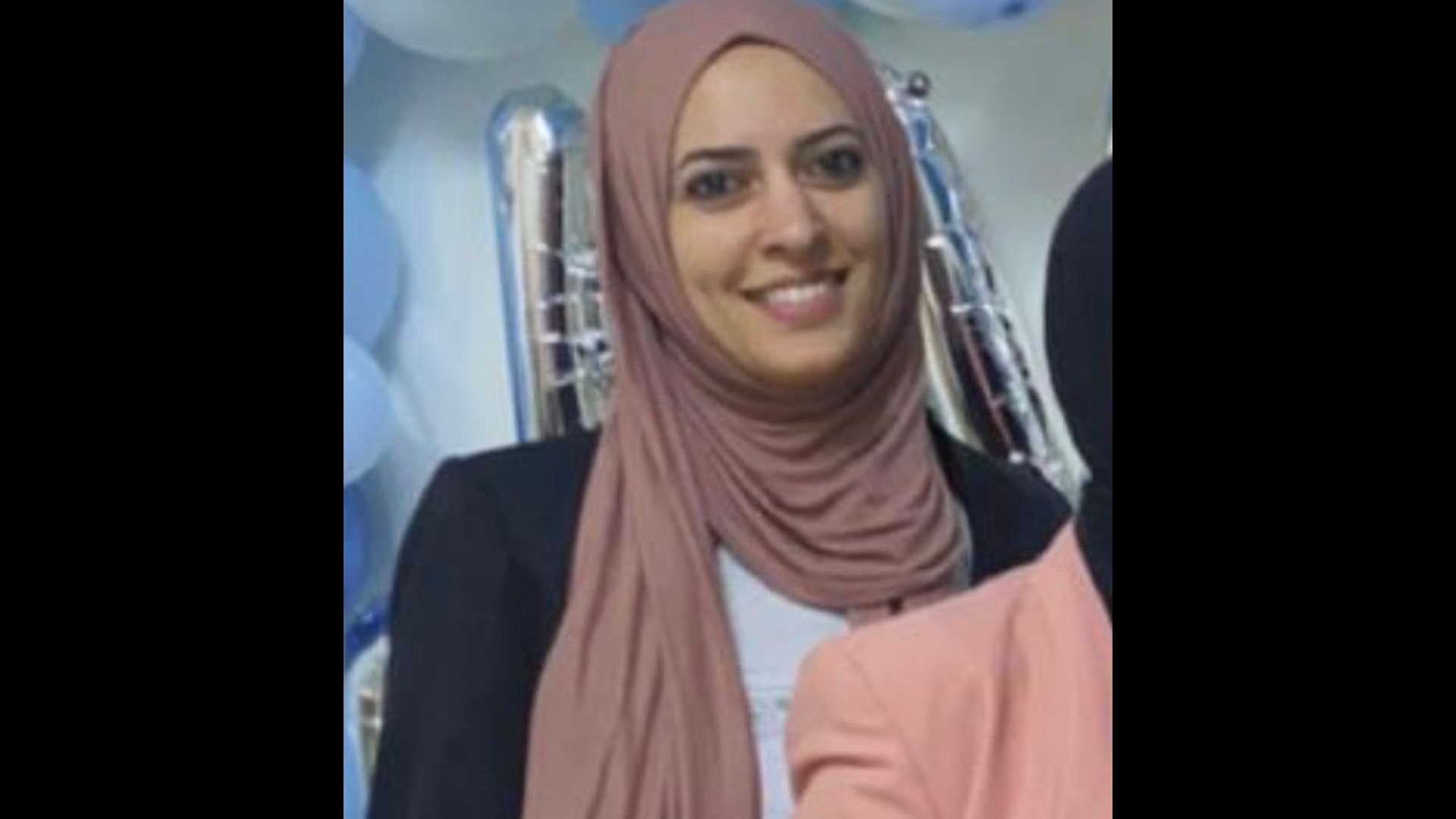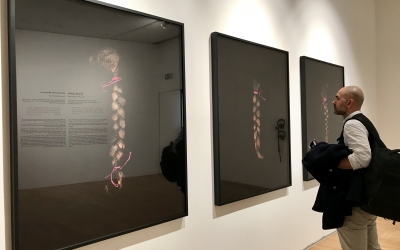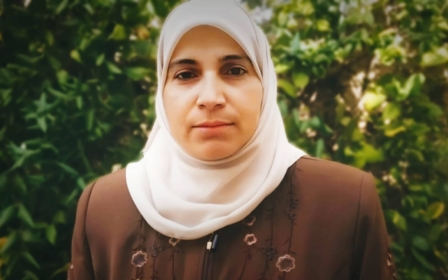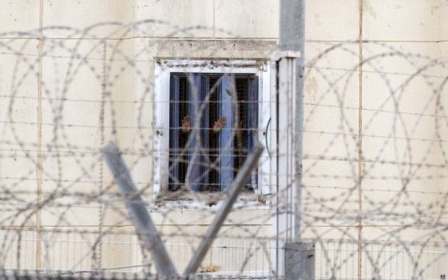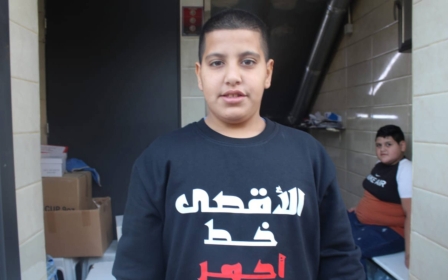Israel-Palestine: Freeing of Palestinian mothers met with uneasy relief
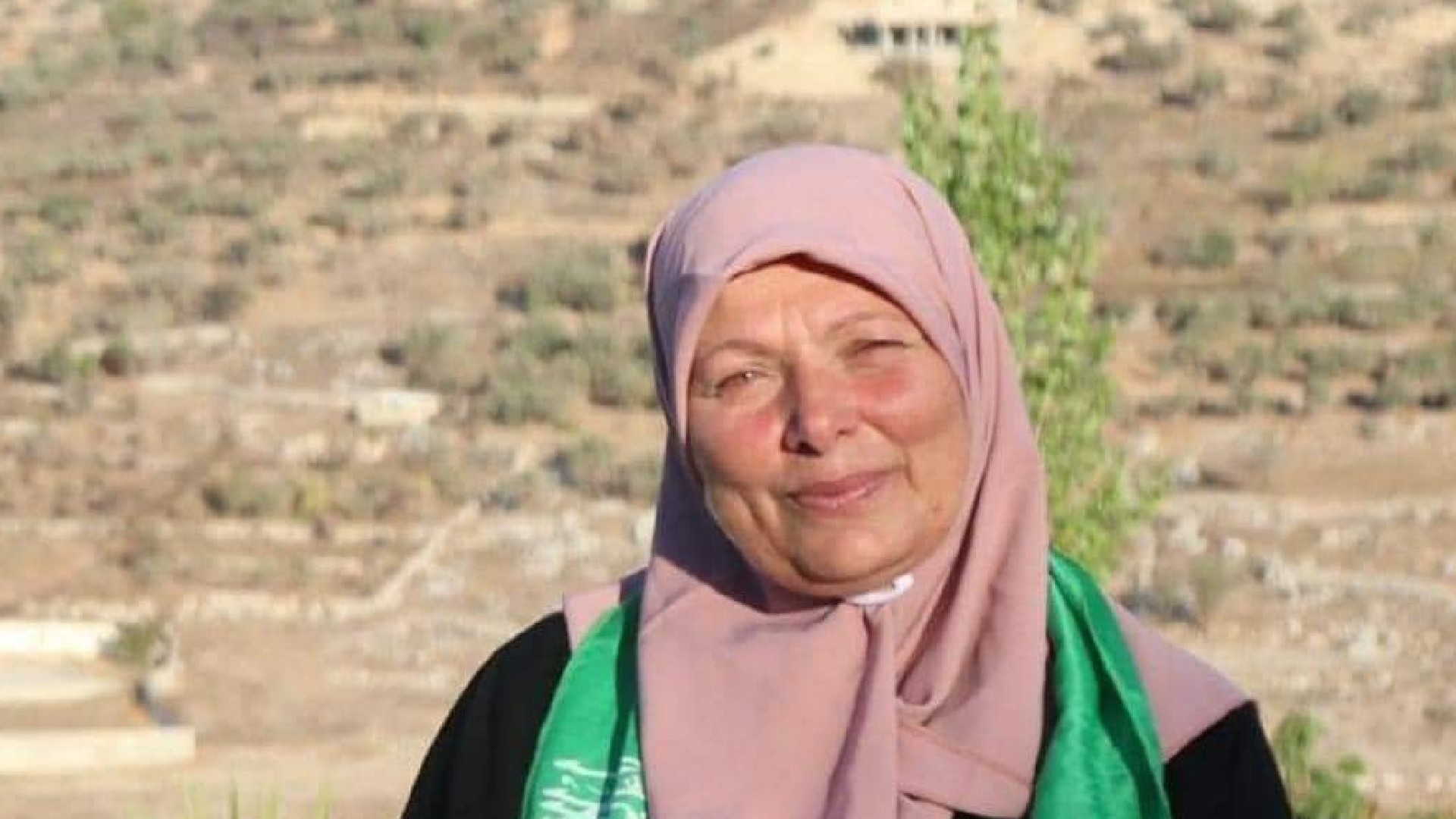
At Hanan Barghouti’s home, her three daughters come to see their father every day to ease his loneliness.
The 59-year-old Palestinian mother, from the occupied West Bank village of Kobar north of Ramallah, has been in Israeli custody for over two months.
And since 7 October, her family have not been allowed to contact her as Israeli prison authorities launched a brutal crackdown on Palestinian detainees.
Barghouti was arrested on 5 September and placed in jail without charge or trial for an initial period of four months, subject to indefinite extensions under the notorious policy of “administrative detention”. Four of her sons are also under arrest.
“The house is empty,” Muhammad Barghouti, Hanan’s husband, tells Middle East Eye.
New MEE newsletter: Jerusalem Dispatch
Sign up to get the latest insights and analysis on Israel-Palestine, alongside Turkey Unpacked and other MEE newsletters
“My wife and all my sons are under arrest, it feels very lonely.”
But as news of a prisoner exchange deal between Israel and Palestinians - involving women and children - started to emerge, the mood shifted at the Barghouti household.
Though the family has not officially been notified of Hanan’s release by Thursday night, the mother of seven and grandmother of 16 is set to walk free on Friday evening, according to the Palestinian Prisoners Affairs Commission.
'Hanan is an active and loving person who creates a special atmosphere at home and everywhere she goes'
- Muhammad Barghouti, husband of detained Palestinian
“When I saw her name on the list of those scheduled to be released, I felt great relief,” Muhammad told MEE.
But the joy is incomplete, he adds. For him, equally important is the lifting of the siege on Gaza, the delivery of aid to its population, and the end of Israel’s bombing campaign.
The prisoner exchange struck by Israel and Hamas on Thursday was part of a truce deal that paused fighting for four days and allowed the entry of humanitarian aid to war-ravaged Gaza.
It came after 48 days of relentless Israeli bombing and ground raids - in Gaza and the West Bank - that killed at least 15,000 Palestinians, including 6,150 children and 4,000 women.
The Israeli assault came following a surprise Hamas-led attack by Palestinian groups on 7 October into southern Israel that killed 1,200 people.
Around 240 people were taken back to Gaza during the attack and held in Palestinian custody.
Palestinian groups said they would only be released as part of prisoner swap deals that would ensure all Palestinian prisoners are freed.
Israel was holding prisoner around 4,700 Palestinians, including around 30 women and 190 children, by the end of September.
But the number has surged since 7 October, as Israeli forces launched massive nightly raid-and-arrest campaigns across the West Bank, rounding up more than 3,000 people in under six weeks.
Two of Hanan’s sons and her sister-in-law were rounded up in the latest wave of arrests.
While the family is still concerned about their fate, for now, they are just excited for Hanan to come home.
“Hanan is an active and loving person who creates a special atmosphere at home and everywhere she goes,” Muhammad explained.
“I’m sure that in prison - despite her old age and illness - she helps ease the hardship of imprisonment on female detainees around her.”
Shot, wounded then arrested
That anticipation, though mixed with pain for those killed in Gaza, is shared across many households in occupied East Jerusalem and the West Bank.
The deal struck on Thursday will see 50 Israeli and 150 Palestinian women and children released, with the number potentially growing to 100 Israelis and 300 Palestinians by the end of the four-day truce.
A total of 37 women are on the list of 300 potential Palestinians to be released. They are all believed to have been arrested before 7 October.
Among them is Fatima Shaheen, who was shot, wounded, and arrested by Israeli forces in the West Bank city of Bethlehem on 17 April, the date Palestinians mark “Prisoners’ Day” to advocate for the freedom of those detained by Israel.
Israeli forces work under a "shoot-to-kill" policy even when Palestinians pose no danger to soldiers, which has been criticised by rights groups. The Israeli military rarely investigates the shooting of Palestinians by its troops.
In Shaheen’s case, Israeli soldiers shot four bullets at her, wounding her in the back, shoulder, and leg.
She was partially paralysed from her wounds, which also led to the removal of one of her kidneys.
Israeli forces said she attempted to carry out a stabbing attack near the Gush Etzion settlement, north of Hebron. Israeli media reported at the time that an Israeli settler was lightly wounded, but no further details were provided on the incident.
The 33-year-old mother has been detained since pending trial.
'Ayloul hardly understands what prison is, why the Israeli occupation arrested her mother'
- Tariq Shaheen, brother of detained Palestinian
Her daughter, five-year-old Ayloul, doesn’t fully comprehend what detention is, said Fatima’s brother Tariq Shaheen. But she is not impatiently waiting to see her mother at home again.
“Ayloul hardly understands what prison is, why the Israeli occupation arrested her mother, or why it arrests women in the first place,” Tariq told MEE.
“She always says her name and doesn’t realise that her mother cannot walk like before on her feet,” he added.
When Fatima’s name was added to the list of potential detainees to be freed in the Israel-Hamas deal, the first thing that came to Tariq’s mind was to complete her treatment.
He says she suffered a great deal in detention, accusing Israeli authorities of medical neglect.
“She was denied visits by her lawyer and family while she was in the hospital,” Tariq told MEE.
“In one of the court sessions that she attended via Zoom from the hospital bed, she told her lawyer that she was exhausted. The judge completely ignored that and extended her detention for 20 days,” he said.
Despite her serious injuries, she was later transferred to Damon prison for female prisoners.
There, Tariq says, she did not receive the necessary medical care, with prison authorities giving her only painkillers when she needed treatment.
'Ugliest thing for a woman'
The prisoner swap deal is reminiscent of a similar exchange in 2011 between Israel and Hamas.
At the time, Israel released 1,027 Palestinian prisoners in exchange for Gilad Shalit, an Israeli soldier Hamas had captured in 2006.
The first phases of the 2011 deal included the release of 20 female prisoners in return for a one-minute video of Shalit that Hamas sent to Israel.
Bushra al-Taweel was among those women released in the 2011 deal, so she knows too well what soon-to-be freed detainees feel like.
The final moments before the release are a mixture of anticipation and cautious joy, she says.
“Before our release, a delegation from the Red Cross came and we were presented to a doctor to do a medical check,” Taweel told MEE.
“After that, officers from the Israeli intelligence came and asked some of us to sign papers in Hebrew that we did not have a translation to, so I refused to sign,” she recalled.
Taweel later discovered the documents included threats of re-arrest over any activity Israel deemed problematic.
It also included agreeing to punitive measures, like travel bans and the requirement to visit an interrogation centre periodically.
Despite all the last-minute threats by Israeli forces, the joy of being freed clouded all else in the end.
“Prison is the ugliest thing for a woman,” she said.
Middle East Eye delivers independent and unrivalled coverage and analysis of the Middle East, North Africa and beyond. To learn more about republishing this content and the associated fees, please fill out this form. More about MEE can be found here.


